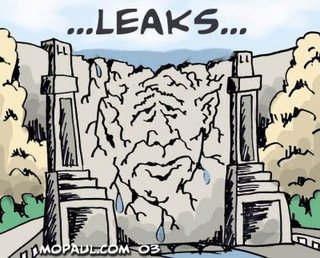Ex-AIPAC staffers say Condi leaked them classified info
 Friday April 28, 2006
Friday April 28, 2006 Ex-AIPAC staffers say Condi leaked them classified info
by ron kampeas
jta
alexandria, va. Two former lobbyists for the American Israel Public Affairs Committee say Condoleezza Rice was their informant on sensitive national security matters.
The claim, laid out in a courtroom Friday, April 21, intensified the drama surrounding a trial that could further roil a Washington political establishment already consumed by cases involving “official” and “unofficial” leaks.
The trial date, originally scheduled to begin April 25, has now been set for Aug. 7, even as the judge in the case continues to suggest the case might not go to trial at all.
In last week’s pretrial hearing, lawyers for Steve Rosen, AIPAC’s former foreign policy director, and Keith Weissman, its former Iran analyst, persuaded federal Judge T.S. Ellis III to allow a subpoena for the secretary of state and three other current and former Middle East policy officials.
Rosen and Weissman were indicted last August on charges that they relayed classified information to fellow AIPAC staffers, journalists and diplomats at the Israeli Embassy in Washington.
The judge continued to express grave doubts about the government’s case, sympathizing with defense claims that it could impinge on free speech rights, and that it lacked precedent.
When Kevin DiGregory, the lead prosecutor, pointed out that the First Amendment had never been cited in a similar case, Ellis chided him, saying: “Well, no case has been like this one.”
Setting out a pretrial schedule, Ellis pointedly would not count out a dismissal before the start of the trial and several times qualified prospective dates, saying “if there is going to be a trial.”
Rosen’s lawyer, Abbe Lowell, said Rice had not merely been Rosen’s interlocutor, but had leaked information identical to and at times more sensitive than examples cited in the indictment.
In addition, Lowell said, the information Rice provided was more “volatile” than the information described in the indictment. Lowell would not elaborate on what information he was referring to.
Lowell asked for an additional meeting with the judge — with no prosecutors present — to further describe the testimony he anticipated from Rice and others. Ellis said he looked forward to “a lot of juicy information.”
(snip)
Ellis had to rule on the request because the subpoenas fell under special rules of the district court in Alexandria, Va., that require subpoenas for Cabinet members, ambassadors and generals to be approved by the presiding judge.
(snip)
It was not all good news for the defense. Lowell wanted Ellis to order depositions from three Israeli diplomats who allegedly received information from Rosen and Weissman. The defense has been unable to persuade the diplomats to voluntarily comply
LinkHere




0 Comments:
Post a Comment
<< Home